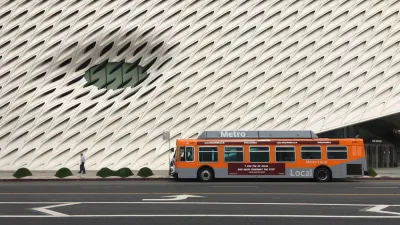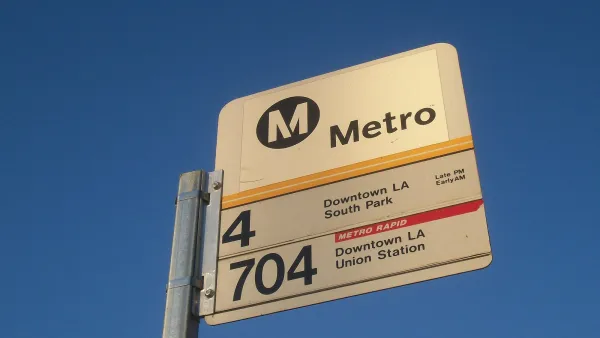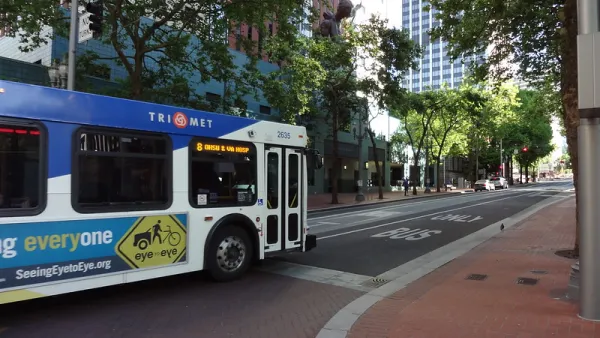The Los Angeles County Metropolitan Transportation Authority implemented a complete overhaul of its bus system in three waves over the course of 2021. A shortage of drivers for the system has made it impossible to implement that vision.

An article by TransitCenter reports on the challenges facing the Los Angeles County Metropolitan Transportation Authority (Metro) as it works to implement its recent NextGen system redesign while dealing with a shortage of drivers.
“Metro introduced NextGen’s schedule and route changes to the bus network over three ‘shake-ups’ in June, September, and December 2021,” according to the article. “The changes were supposed to restore bus service to its pre-Covid level. But since the fall, extreme operator shortfalls have forced Metro to cancel scheduled trips regularly, depriving riders of promised service or a shred of reliability.”
To reveal the scope of the problem, the article notes that one in five scheduled bus strips didn’t show in January. Half of the scheduled trips on the high-ridership 754 route were canceled, according to the article.
TransitCenter also completed an equity analysis using the TransitCenter Equity Dashboard to reveal the scale of the missed opportunity to improve bus service in Los Angeles according to the intended NextGen service map and schedule.
“Jobs, healthcare, and other places would become easier than ever to reach by public transit, even surpassing the pre-Covid-19 benchmark. NextGen service changes would also lessen historic transportation inequities, improving access the most for Black and Hispanic Angelenos, and for residents of historically disenfranchised, disinvested communities,” according to the article.
Black residents of the city stand to gain most from the full realization of the NextGen plan, according to the article:
Our analysis found that transit access to jobs would increase substantially more for Black people than for other Angelenos. Based on February and September 2021 schedules, Black people would gain access to nearly 48,000 additional jobs in 45 minutes by transit, a 36% increase (compared to an additional 30,000 jobs for the average person). Residents of LA Metro’s Equity Focus Communities (identified by the agency based on demographic determinants of disinvestment and disenfranchisement) would be able to access 64,000 additional jobs, a 25% increase.
A lot more detail, including maps and infographics from the TransitCenter equity analysis illustrate more of the ongoing transit crisis created by a shortage of drivers in the nation’s second largest city.
FULL STORY: LA’s Bus Network Redesign Hamstrung by Operator Shortfall

Analysis: Cybertruck Fatality Rate Far Exceeds That of Ford Pinto
The Tesla Cybertruck was recalled seven times last year.

National Parks Layoffs Will Cause Communities to Lose Billions
Thousands of essential park workers were laid off this week, just before the busy spring break season.

Retro-silient?: America’s First “Eco-burb,” The Woodlands Turns 50
A master-planned community north of Houston offers lessons on green infrastructure and resilient design, but falls short of its founder’s lofty affordability and walkability goals.

Test News Post 1
This is a summary

Analysis: Cybertruck Fatality Rate Far Exceeds That of Ford Pinto
The Tesla Cybertruck was recalled seven times last year.

Test News Headline 46
Test for the image on the front page.
Urban Design for Planners 1: Software Tools
This six-course series explores essential urban design concepts using open source software and equips planners with the tools they need to participate fully in the urban design process.
Planning for Universal Design
Learn the tools for implementing Universal Design in planning regulations.
EMC Planning Group, Inc.
Planetizen
Planetizen
Mpact (formerly Rail~Volution)
Great Falls Development Authority, Inc.
HUDs Office of Policy Development and Research
NYU Wagner Graduate School of Public Service




























